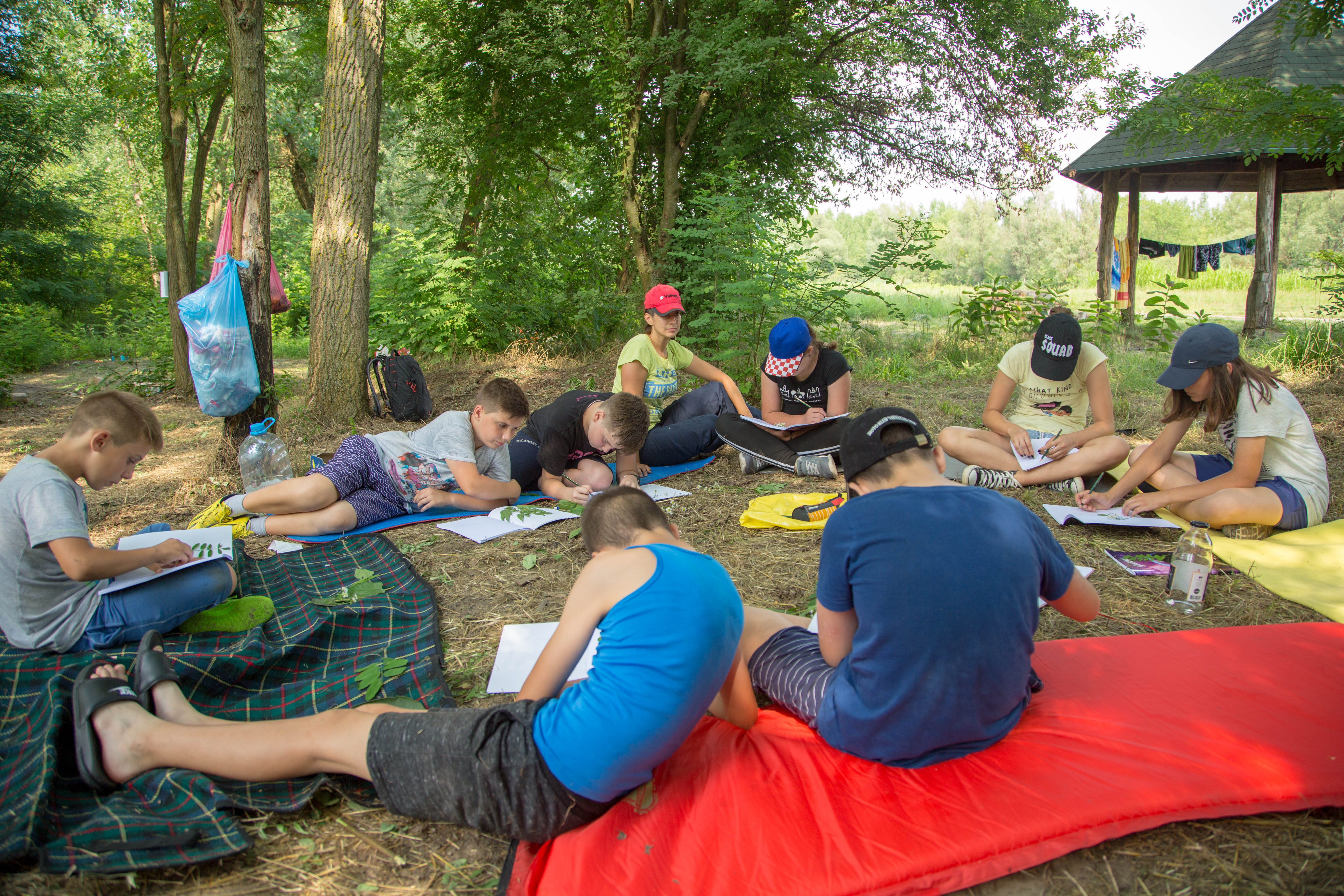The Waldorf School in Osijek will work according to the Curriculum for the primary Waldorf school, approved by the Ministry of Science and Education of the Republic of Croatia.
The curriculum is available at the following link:
Education in Waldorf school in Osijek
In Waldorf pedagogy, the emphasis is on responding in a timely manner to the child's developmental needs, in order to unravel all the child's potentials. Waldorf pedagogy is completely oriented towards healthy child development.
It is the development of all the child's capacities that strengthens the child's resilience, so that the child is more prepared for the real life challenges and situations and the crisis that comes with growing up and maturing.
By working methods that include working on will, emotions and cognitive development, as well as learning with hands, heart and head, the teaching material is absorbed in a natural way.
Classes are divided into epochs (thematic units), which last 3-4 weeks. In this way, the child can immerse himself in one topic and process it completely without distractions. The teaching material that is processed also remains permanently stored in this way.
The Waldorf teacher keeps track of the child’s school work qualitatively and individually, so the children are being given descriptive grades, while numerical ones are introduced in higher grades.
In this way the child's intrinsic motivation for knowledge and learning is nurtured, and unnecessary stress and learning for assessment is avoided.
Children do not have classic textbooks, but each child creates their own textbook for a particular subject. These are their own works of art, which remain in their memory forever. The teacher helps them to make the notes, drawings and sketches in this textbook as high quality and precise as possible, and the children give them their own personal touch. In their adulthood, most often these textbooks are still kept and they serve as a reminder of their school days.
Experiential learning, problem-based teaching, reflection and critical review, application of knowledge and artistic-creative expression of the child are encouraged. The child learns to work individually and as a team and is taught to learn. Curiosity is maintained at a high level throughout schooling.
Classes are divided into main, subject and practical. In addition to the subjects present in other schools (Croatian language, mathematics, nature and society, biology, chemistry, history, geography, physics, physical education, etc.), some additional ones are introduced.
Specific subjects and areas are: handicrafts, eurythmy (movement skills), drawing shapes, gardening, old crafts, botany, zoology, mineralogy, astronomy, etc.
Children learn two foreign languages from 1st grade, play musical instruments and develop talents from many other areas.
The school is located in the center of Osijek, near green areas and parks. Our school garden with a built classroom in nature is also nearby, and it provides countless opportunities for research and practical classes.
Great emphasis is also placed on the development of social abilities and competencies.
The abilities of communication and dialogue, adaptability to new contexts, originality in approach, ability to present ideas, cooperation with others, entrepreneurship, innovation, etc. are being developed.
With these abilities, the child has the opportunity to develop the key competencies needed in the current and future demands of society and the market.
The literary and spiritual heritage of mankind is followed through the curriculum. Fairy tales, fables, legends, mythologies, historical stories and biographies of people who changed the history of mankind, give children food for thought and the opportunity to develop moral lessons, which they then carry with them through life.
Imagination and free thinking are nurtured. Children are not determined by their worldview, but through the curriculum and the way they work, perspectives are opened for them, so that one day they will be free to choose their beliefs.


